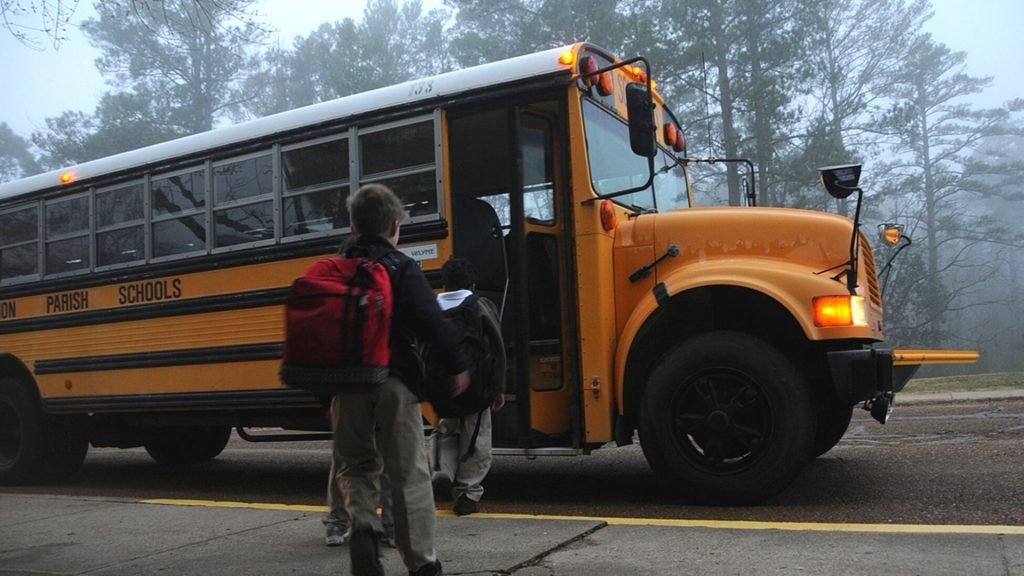West Virginia Schools Pilot First Electric Buses
Four schools in Mercer County, West Virginia are the first to implement a program piloting the use of the electric school bus.
The loud rumble of a diesel-powered school bus rolling through the neighborhood will temporarily be a thing of the past in Mercer County, West Virginia. County school officials opted to participate in a six-week pilot program to test the electric school bus vs. traditional diesel-powered school buses. Students from Princeton Primary, Mercer Elementary, Princeton Middle, and Princeton Senior High Schools boarded the quiet new bus for the first time on September 6. It was the first time an electric bus had transported pupils in West Virginia.
The yellow electric school bus was built by GreenPower motors, which recently opened a facility in South Charleston, just over 100 miles north of Mercer County. The bus was designed to transport approximately 90 students at a time. It can travel around 150 miles on a single charge—more than enough to cover school bus routes on urban and rural roads.
Electric school bus fleets can drastically reduce a school district’s fuel and maintenance costs in addition to lowering noise and air pollution. School districts across the country are working on initiatives that will lead to more electric buses on the road in the coming decade. Some are signing up for an innovative electric school bus subscription service that makes the transition easier.
Mercer County was chosen for the pilot program because School Superintendent Edward Toman was the first to reach out when he heard about the electric school bus trial. Vic Sprouse, Federal Funds and Grants Director at West Virginia Department of Economic Development, will gather data showing how well the new buses operate. They will include input from school bus drivers and transportation directors to determine the program’s success and the future of electric bus service in the state.
State delegate Doug Smith (R-Mercer) was a co-sponsor of House Bill 4571 which proposes increasing the electric school bus count in each county. The number of replacement buses will vary based on each county’s population density. The bill also specifies that the new buses and the energy that powers them be manufactured in West Virginia.
The electric school bus in the trial fits these requirements, as it was manufactured in West Virginia and is powered by the state’s coal-generated electricity. School and government officials are happy that the coal industry will benefit from a switch to electric school bus service. According to Mercer County Board of Education President Greg Prudich, the plan is a win for everyone. “You’re looking at the future. You’re looking at the future of buses made in West Virginia, electrified buses that are charged with West Virginia electricity created by West Virginia coal,” Prudich said. “How could you have a better situation than that? We know they’re coming. We know these are on the way and we want to get ahead of it. We want to be the county that utilizes the best for our students and we believe this is the coming wave of what is best for our students.”
State Senator Chandler Swope (R-Mercer) supports replacing diesel buses with an electric school bus fleet, along with the boost that it will provide to the state’s economy. However, he believes that making all vehicles electric is an impractical decision. He pointed to Europe as an example, where electricity now costs more than gasoline.

Schools are also facing widespread school bus driver shortages, such as the critical situation in Chicago that carried over from last school year. Driving a diesel bus or an electric school bus isn’t an easy job, but districts are desperate to hire new drivers. In Chicago, officials are partnering with local bus vendors to offer higher minimum driver pay to encourage new drivers to apply.



